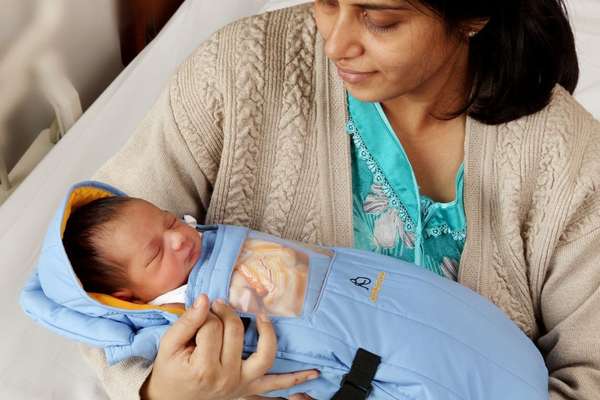
Early Signs Of Autism: What Must You Know?
25 Sep 2015 | 4 min Read
paromita majumdar
Author | 2 Articles
“16 yrs ago they placed you in my arms, I became a mother bewitched by all your charms. You are special to me in all ways…”
Being a mother is a wonderful feeling! When I touched my new born child for the first time, I truly felt what being a mother could be. As I began nurturing my child, lots of dreams floated in my eyes. I waited, as my child grew from a new born to an infant and then to a toddler. I monitored and experienced the joy of each and every step of the development of my child. I was eager to hear the word “MAA” (MOTHER) from my child.
Suddenly I discovered that other kids who are of the same age as my child, were speaking and responding to his / her name and my child was lost in his own world. This difference alarmed me and subsequently got introduced to the word “AUTISM” for the first time through my pediatrician.
Thus started my voyage with autism……
Autism presents itself, as a disorder of profound social disconnect routed in brain development in the first years of life. A child affected by autism may appear unaware of his surrounding and fail to respond to the sights and sounds of the social world. The child may have limited or, no speech or, language skills and follows a different developmental pattern as compared to the children in the same age group. The child engages in restricted repetitive behavior. The range and degree of symptoms for autism falls on a continuum called autism spectrum. Therefore, those with severe or mild autistic disorder, are considered to have autism spectrum disorder.
It is hard to detect early signs of autism in very young children. However, infants with ASD do develop differently from other infants, and there are some ‘Watch Outs’…
Social and Communication Watch-outs
1. Doesn’t point to, or hold up objects to show people things, share an experience or show that he/she wants something
2. Doesn’t use eye contact to get someone’s attention
3. Doesn’t consistently respond to her name
4. Doesn’t use gestures on her own
5. Doesn’t show interest in other children
6. Doesn’t start games such as peekaboo
7. Doesn’t engage in pretend play – for example, he/she doesn’t feed her doll
8. Doesn’t sound like she’s having a conversation with you when she babbles
9. Doesn’t understand simple one-step instructions – for example, `Give me the block’
10Copies what he/she hears from others, or from the TV – for example, when you ask if he/she wants more water, he/she echoes back `more water’.
Behavior: Must Knows
The child –
1. Has an intense interest in certain objects and becomes ‘stuck’ on particular toys or objects
2. Interacts with toys and objects in one particular way, rather than more broadly or in the way they were intended to be played with – for example, turning the wheels of a toy car or lining up objects
3. Is very interested in unusual objects or activities – for example, metal objects, or watching a specific ad on TV
4. Is easily upset by change and must follow routines – for example, sleeping, feeding or leaving the house must be done in the same way every time
5. Repeats body movements or has unusual body movements, such as back-arching, hand-flapping and walking on his toes
6. Is extremely sensitive to sensory experiences – for example, is easily upset by certain sounds, or will eat only foods with a certain texture
7. Seeks sensory stimulation – for example, rubs objects on his mouth, or face, or seeks vibrating objects like washing machines, or flutters his fingers to the side of his eyes to watch the light flicker.
I know often, it is very difficult for a parent to accept the diagnosis. We generally pass through 3 stages from denial to depression and then acceptance. From my experience, I feel the sooner you reach to acceptance led by due diagnosis, (without worrying too much about the tag “AUTISM”), the less valuable time you lose in rearing the child right.
Early intervention is “KEY”
Acceptance is “HOPE”
Also read more about: Understanding Behaviour in Kids with Autism
A


Suggestions offered by doctors on BabyChakra are of advisory nature i.e., for educational and informational purposes only. Content posted on, created for, or compiled by BabyChakra is not intended or designed to replace your doctor's independent judgment about any symptom, condition, or the appropriateness or risks of a procedure or treatment for a given person.
